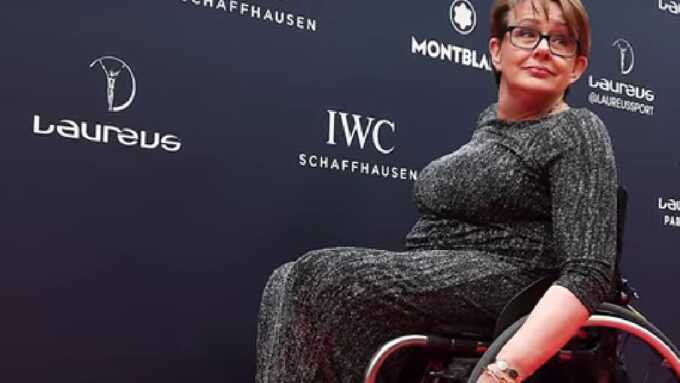ParalympicsGB chief calls Tanni Grey-Thompson’s train ordeal ‘a disgrace’

The chef de mission of ParalympicsGB has said it is a “disgrace” that Dame Tanni Grey-Thompson was forced to drag herself off a train in London’s Kings Cross because there was no help for wheelchair users, and warned it is “the lived experience of disabled people on a daily basis”.
Speaking in Paris ahead of the opening ceremony of the Paralympic Games on Wednesday night, Penny Briscoe said the British team were “raring to go”. But she argued the traumatic experience endured by Grey-Thompson, winner of 11 Paralympic gold medals who was on her way to the Games, showed the necessity of ParalympicsGB using its platform to push for social change.
“Clearly, it’s an absolute disgrace,” Briscoe said. “It’s the lived experience of disabled people on a daily basis though, it just doesn’t get reported. As ParalympicsGB we’re trying to inspire a better world for disabled people through sport. It doesn’t matter if that’s education, if that’s in life, in society, we want change and our athletes want change. You should, as a disabled person, be able to get on and off a train and go about your daily living but the reality is far more difficult than that.”
Briscoe said that a lack of accessibility is so common as to even affect the ability of the elite athletes of ParalympicsGB to properly perform. “If you take Tanny’s example two days ago, not being able to get off a train, that could have been an athlete going to a training session, and they missed that training session because transport lets them down,” she said.
“Accessible bathrooms is another issue, and is still an issue in terms of Paris. We’ve got an inspiration program [of aspiring athletes] coming to Paris and we’re cherry picking all of the hotels that have got accessible bathrooms. It’s not as simple as walking in, that’s a nice hotel, we’ll have it. That’s a nice hotel, how many accessible bathrooms has it got? Oh, three. Right, we’ll put three athletes in there.
“So there’s lots of ways in which accessibility or lack of accessibility can impact us as a team. But we have to remember, first and foremost, it impacts on people with a disability every day of their lives. And they have to find ways to navigate those. And I think it’s incumbent on us to use our voice to challenge that and to create a more barrier-free and more inclusive environment.”
The chief executive of ParalympicsGB, Dave Clarke, is set to meet with the prime minister on Thursday, with Keir Starmer in Paris to attend the opening ceremony. Clarke has sought to bring social justice to the forefront of the organisation’s mission since taking up the role last year and will have a one-to-one meeting with the PM before he is shown around the British facilities in Paris.
ParalympicsGB is also aiming for another Games of sustained sporting success, after they finished second in the medals table in Tokyo three years ago. Dr Kate Baker, the director of performance at UK Sport, said the performance of the team should not be judged simply by medals however.
“I think our athletes achieving their potential is the ultimate satisfaction,” she said. “There’s 215 athletes, 75 debutants, 95 coming back with Paralympic medals already in their pockets. This is a group who know how to do this thing really well.
“Of course, it would be satisfying to be ahead of the US, to be ahead of Australia, to be ahead of Brazil, to be ahead of all the other nations who are sort of in that bunched-up space just behind us. If we’re realistic, it may not all go our way. And if it doesn’t, it won’t be a reflection on the hard work that’s coming across the system, all the talent in this group of athletes.”
Read more similar news:
Comments:
comments powered by Disqus

































